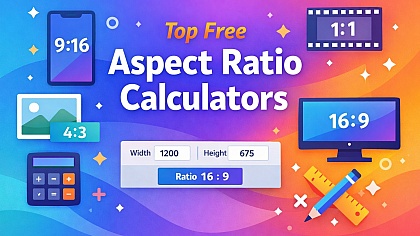
Crafting Research Proposals: A Student's Path to Funding
When seeking funding for research studies, writing a persuasive research proposal is perhaps one of the most crucial undertakings involved in the process. Whether seeking a bachelor's, a master's, or even a PhD, funding bodies can mean the difference between continuing with your research or being stuck at a dead-end. Not only does a good research proposal show your capacity to think and react well to your field, but it also persuades funding agencies that your project is worth funding.
This is a student guide at different levels of study to guide you through the complexities of how to write an interesting, brief, and well-structured research proposal. Besides offering tips that are most critical in writing the proposal, we will cover the essential information the funders seek, the significance of the structure, method, and open goals. We'll also identify how assignment help at critical points can sharpen and make your proposal more robust.
Why a Strong Research Proposal Matters
Before getting into the nitty-gritty of how to build a research proposal, let's talk about why your proposal is so important. A research proposal is usually your first encounter with possible sponsors, supervisors, or scholarly panels. It's a written presentation, where your project is evaluated based on whether it's new, feasible, and worth it to the research community.
A good proposal:
- Sets up credibility: It demonstrates that you know the research issue and can carry out a study that will contribute to the body of knowledge.
- Demonstrates mental acuity: It assures that you have considered the scope of the project and method and can set out these concepts clearly.
- Assures funding and sponsorship: An effective proposal provides you with a better opportunity for securing finance, grants, and institutional sponsorship.
As the stakes get higher for funding research, knowing how to write a good research proposal is a skill that students who want to leave their mark in their field of study must acquire.
Key Elements of a Research Proposal
A research proposal is generally broken down into several significant sections, each serving a specific purpose. Below is a breakdown of the sections you should have, along with tips on making each one sparkle.
1. Title and Introduction
Your title must be concise, informative and descriptive, preparing the reader for what they can expect. In the introduction, you will have to present an overview of the research problem, why it matters, and present an overview of the research aims. The introduction must be so interesting that the reader will have to keep reading.
- Research problem: Identify the problem or knowledge gap that your research will help solve.
- Significance of the topic: Describe why the issue or topic is important in the context of your field of academia or society at large.
- Research aims: Identify the main reasons for your research and how these will add to current knowledge.
Employ this section to entice the reader, setting up the rest of your proposal. Assignment assistance may be able to guide you if you're stuck on how to structure or articulate your ideas to ensure that your introduction is compelling.
2. Literature Review
Literature review informs you of what has already been done on your subject. It is not a description of work that previous studies have already done, but an analysis which demonstrates you know the state of knowledge and how your research will address gaps. It demonstrates your capacity to critically analyse what has already been done and place your project in the broader academic debate.
- Critical discussion: Do not only report studies, but also critically sum up studies and describe how the studies connect with your study.
- Make clear gaps: Clarify where gaps exist in research and how your study will address such gaps.
- Contextualise your work: Describe how your research will inform current academic arguments or resolve a problem within your field of research.
A good literature review proves that you have carried out your research and are prepared to provide new evidence to your field of study. Your review ought to be concise and focused on the goals of your research.
3. Research Methodology
It informs you regarding the way you will conduct your research. It ought to explain the methods and methodologies you will utilise during data collection and analysis. You must include:
- Research design: Qualitative, quantitative, or mixed, let us know how you will undertake it.
- Data collection methods: Let us know how you will collect your data (e.g., surveys, interviews, experiments).
- Data analysis techniques: Let us know how you will analyse the data you collect (e.g., statistical analysis, thematic coding).
Methodology is also very important in the proposal as it indicates that you have an approach that is actionable, achievable, and possible to undertake to conduct your research. You must ensure that the funders are satisfied that your project is not an idea but a project you can carry out effectively.
4. Timeline and Milestones
A well-defined timeline informs the funder that you are responsible and know how you will finish your research. Divide your project into phases, where major milestones and deadlines for each phase are defined. Your timeline has to be realistic and consider the time for each phase of your project.
- Phase 1: Preparation (literature review, narrowing research questions)
- Phase 2: Data Collection (surveys or experiments)
- Phase 3: Data Analysis (interpreting results, concluding)
- Phase 4: Final Report (writing up the research findings)
Funders need to know you can produce results within a specified timescale, and a good timeline is essential to enabling them to get an idea of this.
5. Budget
Here, give the budget breakdown of your research study. As accurately as possible, give the material cost, equipment cost, travel cost, software cost, or personnel cost. Funders must be able to understand that your budget is reasonable and that you are spending the money well. Giving a justification for each expense is also recommended.
- Direct costs: The cost of data collection, materials, and travelling.
- Indirect costs: Administrative fees or overheads.
- Contingency: A small amount set aside for unforeseen expenses.
A well-prepared budget helps ensure that your proposal is taken seriously and shows you’ve planned carefully for the financial requirements of your project.
6. Expected Outcomes and Impact
Finally, explain the anticipated outcomes of your research and how they will impact your field. This is your opportunity to show funders that your research will contribute valuable knowledge and advance the discipline. Be clear about the potential implications of your findings and how they will address the research problem you’ve outlined.
- Knowledge contribution: How will your research fill existing gaps in the field?
- Practical applications: Will your research be useful in practical applications or have policy implications?
- Future research: What lies ahead for future research after your research?
Funders prefer research that makes an impact, so be sure to highlight the probable long-term contribution of your research.

Tips for Writing a Strong Research Proposal
Now that you have an idea of how to write a research proposal, here are some tips that will help you in writing an engaging and convincing document:
1. Be Clear and Concise
Never use jargon terms and hard vocabulary. A research proposal must be simple so that the funders can quickly understand your ideas. Use straightforward words and do not use unnecessary words.
2. Keep Your Focus on the Problem
Keep your proposal short to the question of research and how you will be able to answer it. Do not divert, and keep each section of your proposal taking you back to the general question you are asking someone to answer.
3. Use Visuals Where Appropriate
Charts, graphs, and tables can be utilised to break up the text and present complicated ideas. Utilise pictures judiciously and only have them if they contribute something to your proposal and do not overpower it.
4. Assignment Help and Feedback
Do not hesitate to seek peers', advisors', or academic writing services' critiques. They can provide you with feedback that can enhance your proposal. Assignment help would be greatly appreciated, especially at the initial stages when you are developing your ideas and making sure that your proposal is well-founded and convincing.
How to craft a good research proposal is a critical skill for academic research students. With proper format, good literature review, authentic methodology, and proper presentation of your ideas, you can greatly increase your chances of getting sponsored and funded.
If in doubt about some aspect of writing proposals, help from a professional assignment writer can be the solution to tighten up your strategy and improve the quality of your submission. Assignment in Need (assignmentinneed.com) and other assignment help services can help with every step of your research proposal, from idea generation all the way through to editing the final draft.
By spending the time and effort necessary to create a good research proposal, you will be well on your way to advancing your academic career and gaining the research funding you require.














